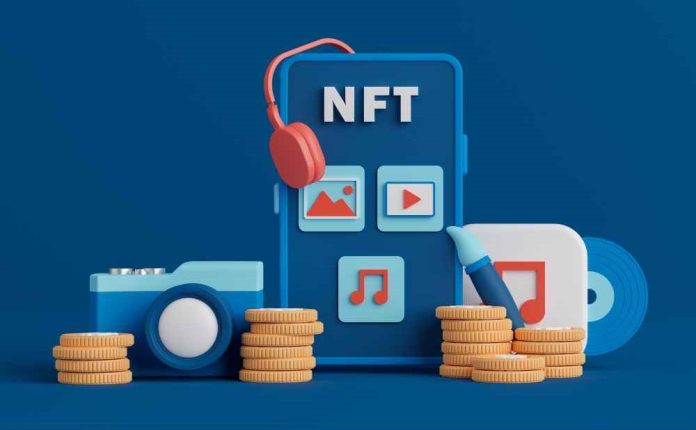
The intersection of technology and music has birthed many innovations. Still, none have held as much promise for reshaping the relationship between artists and fans as music NFTs (non-fungible tokens). Music NFTs represent a significant shift in fan-driven ownership, allowing for deeper, more personal connections between artists and their audiences. These tokens give fans direct ownership of music-related assets and empower them to participate in the artist’s journey. As the music industry navigates an increasingly digital world, music NFTs offer a glimpse into a future where fans aren’t just listeners—they’re investors, co-creators, and key players in the artist’s success.
The Evolution of Music NFTs
Music NFTs first gained attention as a way for artists to sell digital assets—songs, albums, artwork, or exclusive content—directly to their fans. Unlike traditional streaming platforms where artists earn fractions of a cent per play, NFTs allow musicians to monetize their work more directly and transparently. Early adopters like Kings of Leon and Grimes made headlines with multi-million-dollar NFT drops, highlighting the potential of this new revenue stream. But the power of music NFTs extends beyond big-name artists and million-dollar sales; it’s about evolving fan engagement and providing new opportunities for artists at every level.
At their core, NFTs are unique digital assets stored on the blockchain, a decentralized ledger that ensures their scarcity and ownership. For music, this means that artists can tokenize their work, selling limited editions or one-of-a-kind pieces that fans can collect, trade, or even display as status symbols. This creates a sense of exclusivity and community, where fans feel more closely connected to the music and the artist’s success.
Fan Ownership and Engagement
The potential for fan-driven ownership sets music NFTs apart from other digital assets. When fans purchase a music NFT, they own a piece of the artist’s work in a way that’s never been possible before. In some cases, ownership comes with exclusive perks, such as backstage passes, early access to new releases, or even a share of the royalties generated from the music itself.
For example, an emerging artist might release a limited series of NFTs tied to their latest album. Each NFT could offer different levels of access—some might include exclusive behind-the-scenes footage, while others might grant holders access to special virtual meet-and-greets. By owning these NFTs, fans become part of the artist’s inner circle, with privileges that go far beyond simply streaming their music on Spotify or watching a music video on YouTube.
This model also empowers fans to have a say in an artist’s creative decisions. Artists can involve NFT holders in key decisions like voting on setlists for concerts, choosing artwork for album covers, or even contributing to the creative process itself. This level of fan engagement fosters a deeper connection between the artist and the audience, transforming passive listeners into active participants.
Reshaping Artist-Fan Relationships
The fan-driven ownership model enabled by music NFTs isn’t just about financial investment—it’s about emotional investment. For fans, owning a music NFT represents more than just holding a digital asset; it’s a way to show support for their favorite artist and be part of something bigger. For artists, it’s an opportunity to build stronger relationships with their most dedicated supporters and gain more control over their creative output.
Music NFTs are particularly appealing to independent artists who may not have the backing of a major label. By selling NFTs, these artists can raise funds directly from their fans, bypassing traditional gatekeepers and keeping a larger share of their earnings. This model also enables artists to create more niche or experimental projects, knowing that their fans are invested in their success and willing to support them financially.
Additionally, NFTs allow artists to retain control over their work in a way that traditional distribution channels do not. For example, artists can set rules for how their NFTs can be resold or transferred, ensuring that they benefit from any future sales through royalties encoded into the smart contract. This is a game-changer for musicians who have historically had little control over how their work is monetized after the initial release.
The Future of Music NFTs
As music NFTs continue to evolve, we can expect to see more innovative ways for artists and fans to engage with one another. For instance, NFTs could serve as tickets to exclusive virtual concerts or events, allowing artists to create more intimate and interactive experiences for their fans. NFT-based fan clubs could also emerge, where members gain access to exclusive content, experiences, and even co-creation opportunities with the artist.
Beyond individual artists, music NFTs have the potential to reshape the entire music industry. Record labels, streaming platforms, and other music companies are already exploring ways to integrate NFTs into their business models. For example, some platforms are experimenting with fractional ownership, where fans can buy a small share of a song or album and receive a portion of the royalties generated from streams or sales.
This shift towards fan-driven ownership could democratize the music industry, allowing more artists to find success without relying on traditional record deals. It also creates new revenue streams for artists and opens up opportunities for fans to play a more active role in the music ecosystem.
Conclusion
Music Industry Weekly recognizes that NFTs represent a powerful new way for artists and fans to connect, creating a more dynamic and interactive music industry. By offering fans direct ownership and engagement opportunities, NFTs empower artists to monetize their work more effectively while fostering deeper connections with their audience. As the music industry continues to evolve, NFTs could play a crucial role in reshaping the relationship between creators and their fans, offering a glimpse into a future where music is not just something we listen to—it’s something we own and co-create.